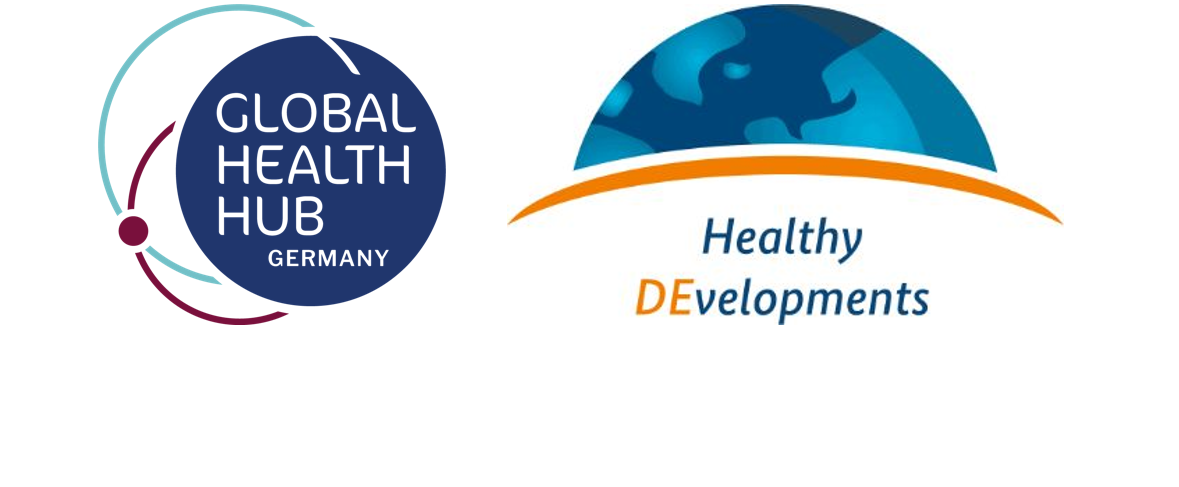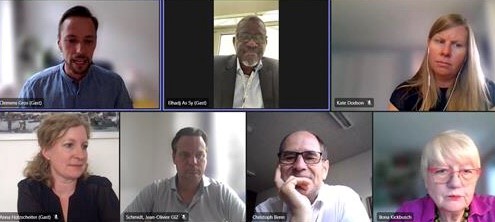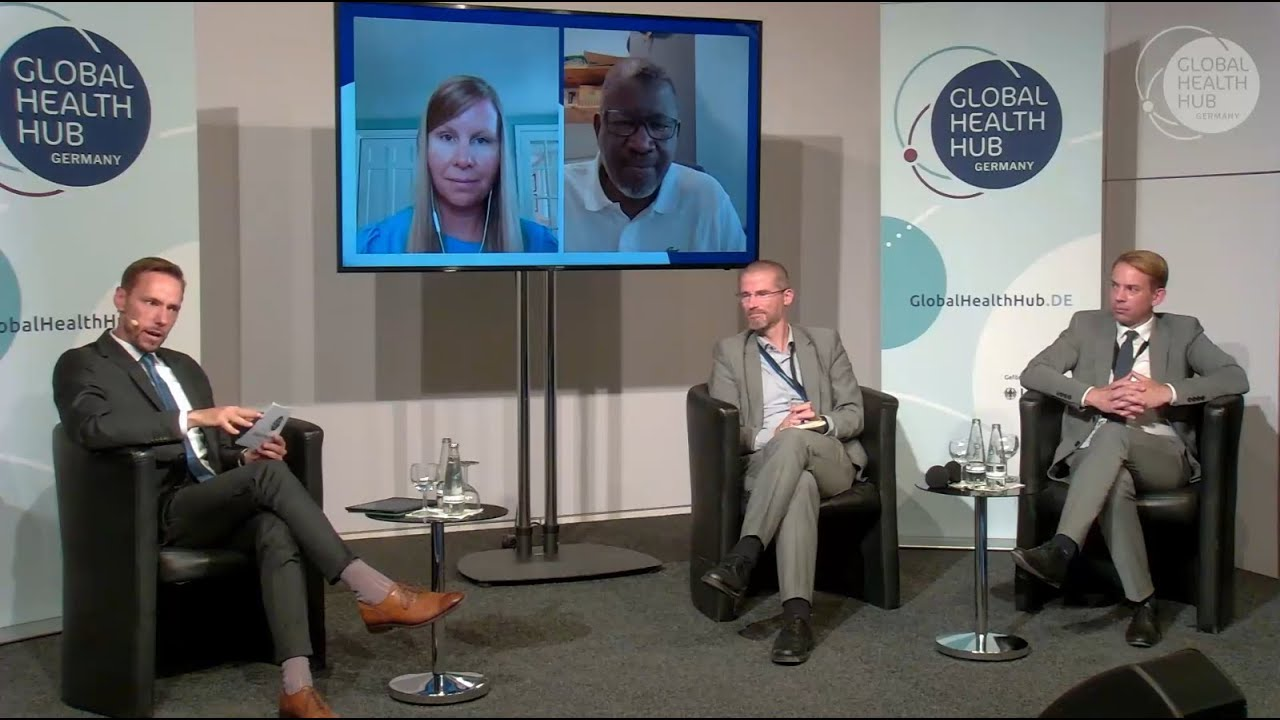Results of our Catalyst Dialogue on Global Health Architecture

Towards a global health architecture that works for all – Insights from a debate on where we stand, what must change and how Germany can contribute.
Seven experts from different backgrounds offer policy insights
To enrich the German government’s position on relevant developments in global health, the Global Health Hub Germany, in cooperation with Healthy DEvelopments, on behalf respectively of the German Federal Ministries of Health and of Economic Cooperation and Development convened a high-level Catalyst Dialogue between April and June 2022.

Guided by the overarching question ‘Which global health architecture do we need?’, seven distinguished representatives of academia, development cooperation, foundations and the private sector participated in the dialogue:
- Christoph Benn, Director for Global Health Diplomacy, Joep Lange Institute
- Kate Dodson, Vice President for Global Health Strategy, United Nations Foundation
- Roland Göhde, Chair of the Board, German Health Alliance
- Anna Holzscheiter, Professor of International Politics, Technical University Dresden
- Ilona Kickbusch, Founder and Chair of the Global Health Centre, Graduate Institute of International and Development Studies in Geneva
- Jean-Olivier Schmidt, Head of Programme, BACKUP Health, Deutsche Gesellschaft für Internationale Zusammenarbeit GmbH (GIZ)
- Elhadj As Sy, Chair of the Board, Kofi Annan Foundation
The participants gathered for two virtual debates and contributed individual reflections and perspectives in bilateral conversations under Chatham House Rule.

The first Catalyst Dialogue on global health architecture
In the context of the COVID pandemic and the challenges that it revealed for an efficient and effective global health response, the Hub’s Steering Committee proposed as priority for the first Catalyst Dialogue the question ‘Which global health architecture do we need?’. Between April and June 2022, this topic was debated by the seven renowned experts, who gathered for two virtual debates and contributed individual reflections and perspectives in bilateral conversations under Chatham House Rule.
The objective of this paper is to share their diverse perspectives on this question. Rather than present a consensual statement, the document traces central lines of argument from this Catalyst Dialogue. It seeks to present insights into learnings, challenges and opportunities, identifying where there might be potential to work towards a global health architecture that functions for all of us. This paper closely follows the Catalyst Dialogue discourse as it unfolded. It illustrates policy-relevant positions and presents opposing and sometimes even contradictory perspectives, all of which promise to enrich Germany’s policy dialogue on global health governance.
The Hub shares the outcomes of the Catalyst Dialogue and puts them up for discussion with the parliamentary subcommittee on Global Health and respective other committees, as well as the ministries that form part of the Hub Steering Committee. Thereby the Hub aims to increase consideration of perspectives from non-governmental actors within policy decisions.
How could Germany contribute to a Global Health Architecture that can serve the needs of all?
The following suggestions for German policy-makers surfaced over the course of the Catalyst Dialogue. They do not necessarily represent the views of all Dialogue participants:
- Strengthen the role of WHO as the ‘normative pole’ of global health and its coordination function, primarily by funding it ‘properly’.
- Push for better coordination between the major global health initiatives and alignment with existing country systems by exerting political leadership on the governing boards of these institutions and by introducing follow-up mechanisms.
- Establish meaningful mechanisms for participation of non-state actors in global health decision making, for example, by empowering non-state actors to bring their voices into the World Health Assembly, and by giving civil society full voting rights on the major new initiatives currently emerging in global health.
- Offer technical development cooperation to support partner countries in strengthening their regulatory and management capacity to effectively coordinate their engagement with global health initiatives and to present their national policies and plans as the basis for donor alignment.
- In Germany, cultivate expertise for global health through systematic investment in academic training and in promotion of think tanks and ‘public intellectuals’ in the country’s global health ecosystem.
- Map and connect German actors active in global health to enable synergies, for example, between bilateral development cooperation, private sector investment, civil society engagement and scientific or academic expertise.
- Reduce internal fragmentation in how Germany engages in global health governance by better coordinating and aligning positions and engagements across the multitude of German ministries and agencies with a mandate for global health.
Panel Discussion "Building the Global Health Architecture We Need"
Image source: Unsplash / Kyle Glenn
